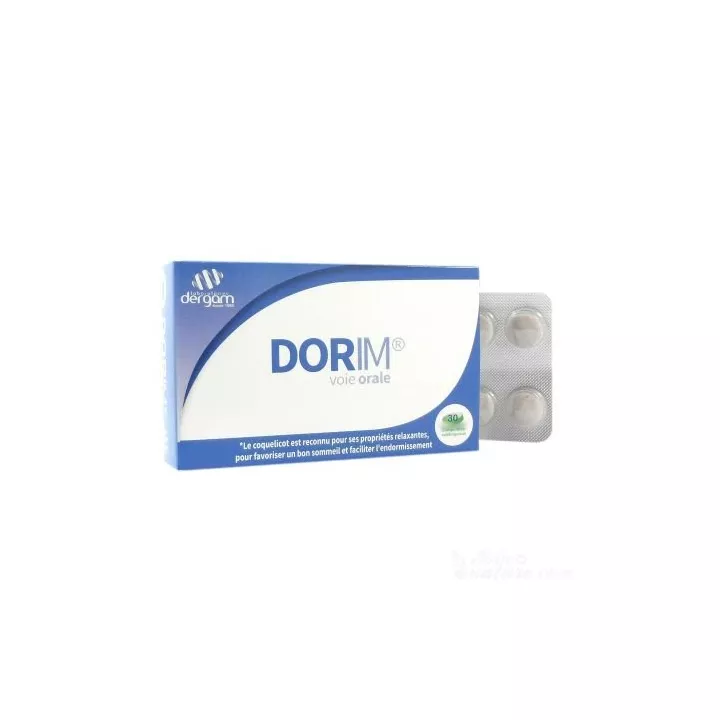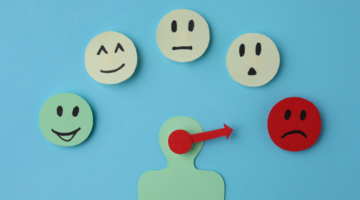SYMPATHYL ESCHSCHOLTZIA HAWTHORN 40 TABLETS
Nervousness, sleep disorders - Adults
This medicine is indicated for people who :
- suffer from stress andanxiety day and night,
- suffer from overwork at work, school or at home,
- suffer from episodes of stress and anxiety linked to a disrupted life situation,
- need to learn to cope with stress during the day,
- are preparing for exams,
- have trouble falling asleep,
- are looking for a natural, herbal alternative.
For warnings, precautions for use and contraindications, please consult the instructions for use.
Description of Sympathyl Eschscholtzia Hawthorn 40 Tablets
Sympathyl 40 film-coated tablets is a drug used as a sedative. Sympathyl is recommended for adults to reduce nervousness or in the event of exaggerated heartbeat perception (palpitations) after any heart disease has been ruled out; Sympathyl Eschscholtzia Aubépine is used in the event of mild sleep disorders.
Directions for use
Dosage
For adults only.
The usual dose is 4 tablets per day, taken twice, i.e. 2 tablets in the morning and 2 tablets in the evening, before meals.
Method of administration
Take orally.
Swallow tablets with a glass of water.
Frequency of administration
Morning and evening, before meals.
Duration of treatment
Treatment should not be prolonged without medical advice.
Composition
The active ingredients are:
- Eschscholtzia (dry aqueous extract) 20.00 mg
- Hawthorn (dry hydroalcoholic extract of flowering tops) 75.00 mg
- Heavy magnesium oxide 24.35 mg
Quantity corresponding to 75 mg elemental magnesium, i.e. 6.2 mEq
For one film-coated tablet.
Other components are:
Microcrystalline cellulose, sodium carboxymethyl starch (type A), micronized stearic acid, shellac, polyvidone, acetylated monoglyceride, hypromellose, titanium dioxide, macrogol 6000, indigo carmine lake, azorubin, yellow iron oxide.
Packaging
Box of 40 tablets.
Our advice and expert opinions
Insomnia is the most common sleep disorder. While the majority of insomnia is linked to relatively benign problems, sleep disorders can sometimes be the sign of an illness. When sleep disorders persist, they have negative repercussions on physical and mental health. In such cases, don't hesitate to consult a doctor.
When do we talk about insomnia?
One French person in three claims to suffer from insomnia. But only those who feel the consequences of sleep deprivation, such as fatigue, difficulty concentrating, irritability or memory problems, really suffer. Anyone who feels great the day after a short night's sleep is probably an unknowing short sleeper.Chronic insomniaaffects almost 20% of the French population. It is severe in 6 to 9% of cases. There are several types of insomnia:
-Insomnia associated with falling asleep: this is the most common. The person goes to bed at a usual time, and one or two hours later, is still unable to fall asleep.
-Mid-night insomnia: the person wakes up in the middle of the night, one or more times, and has difficulty getting back to sleep.
-Early-morning insomnia: the person falls asleep without any problems, but wakes up at around 4 or 5 a.m., unable to get back to sleep.
-Total insomnia: this type of insomnia is much rarer. The person stays awake all night.
Some people also have an inversion of their sleep rhythm: they sleep during the day, but not at night.
What causes sleep disorders?
Anxiety and stress are the main causes of poor sleep, as are environmental factors (noise, moving house, etc.). Sometimes, other problems can cause sleep disorders, such as snoring, pain, poor bedding, excess caffeine or alcohol.
While the vast majority of insomnia is linked to relatively benign psychological disturbances, sleep disorders can be a signal of physical illness. They can be a warning of diabetes, for example, hyperthyroidism, infectious disease, cardiovascular problems, neurological disorders or osteoarthritis. It is therefore necessary to look for these illnesses when sleep is disturbed.
Certain medications, such as corticosteroids or decongestants, as well as nicotine, can be responsible for insomnia. Don't forget to tell us about your current treatments. Finally, insomnia may be one of the symptoms of another psychological illness. Mid- and late-night insomnia, for example, are characteristic of depression. Finally, sleep-wake rhythm disorders can occur in people who are subject to jet lag, or who work night shifts (shift workers, nursing staff).
Drug warnings
Medication is not a product like any other. Read the package insert carefully before ordering. Keep medicines out of the reach of children. If symptoms persist, ask your doctor or pharmacist for advice. Beware of incompatibilities with your current products.
Please inform your online pharmacist of your current treatments to identify any incompatibilities. The order validation form contains a personalized message field for this purpose.
Click here to find the package leaflet for this drug on the Agence Nationale de Sécurité du Médicament et des Produits de Santé website.
Pharmacovigilance: Report an adverse drug reaction(s)












